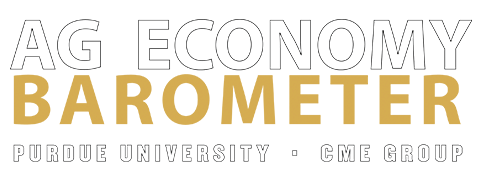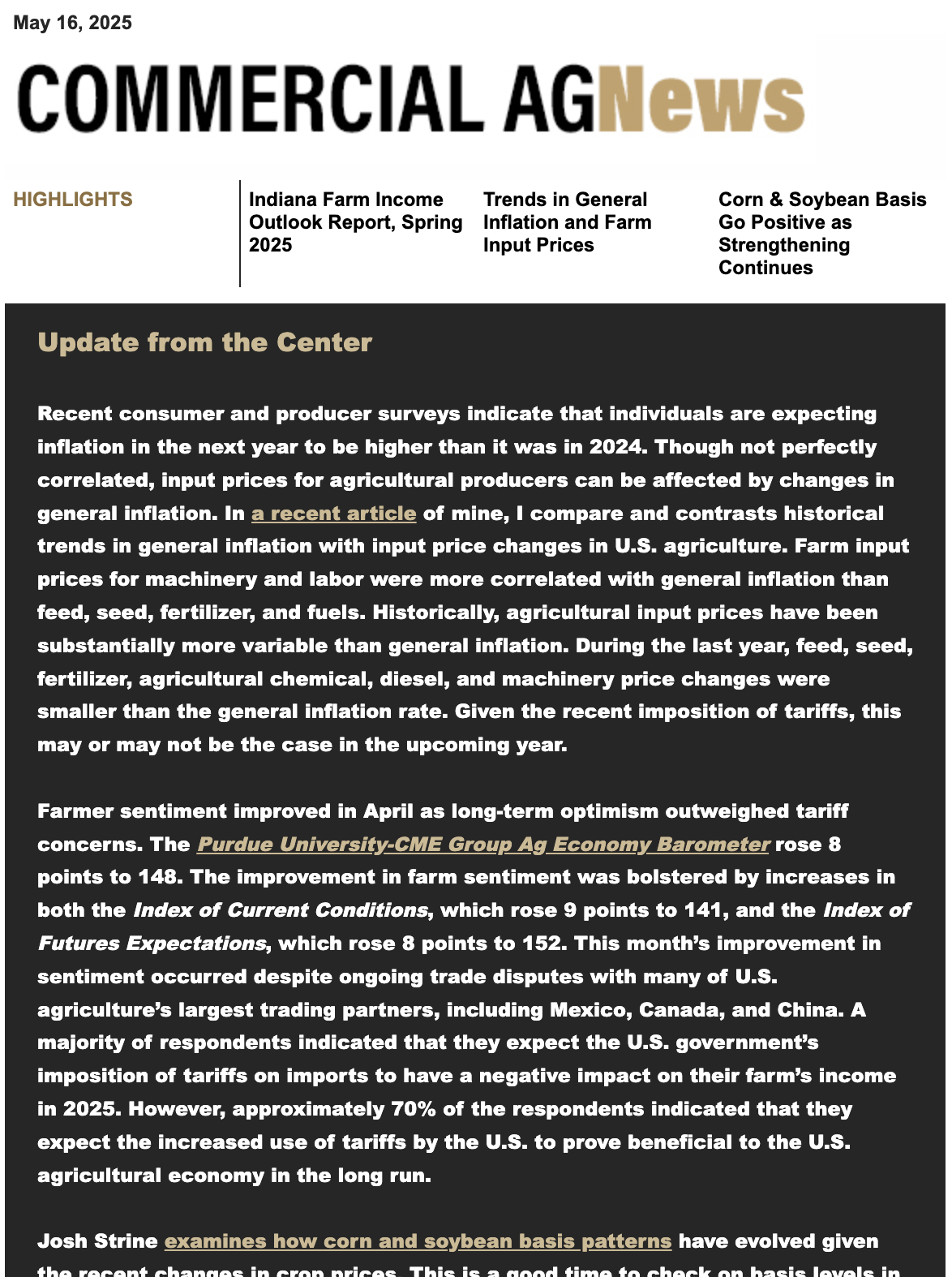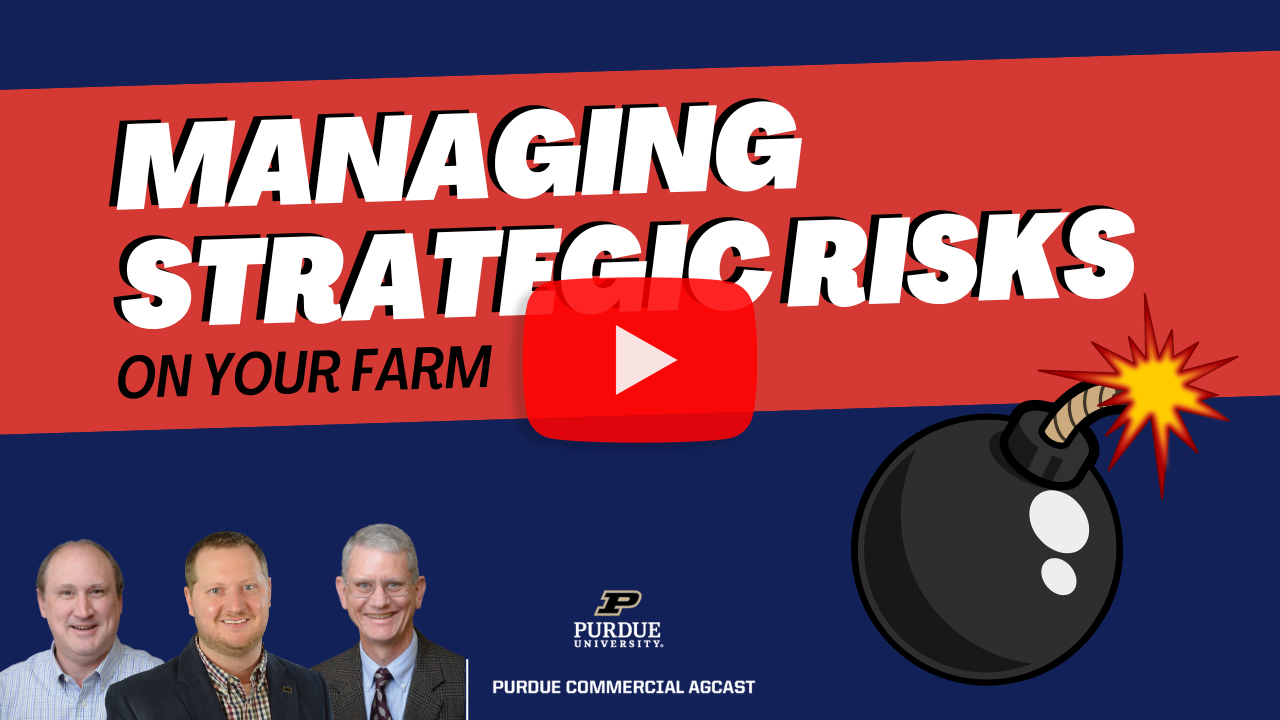Net Return Comparisons between Tillage Systems
Using the FINBIN database, this article compares the net return per acre between no-till systems and reduced tillage systems for corn and soybeans from 2014 to 2023. It is important to keep in mind that no-till systems typically exhibit lower erosion levels and GHG emissions. There is a tradeoff between net return per acre and environmental concerns that need to be considered when comparing these two production systems.
Read MoreFarmland Investments: A Conversation with Kyle Maple and Pete Drost
Kyle Maple and Pete Drost, professionals in the farmland investment space join hosts Todd Kuethe and Chad Fiechter in this episode of Purdue Commercial AgCast.
Read MoreDecomposition of Changes in Net Worth
There are three major changes that contribute to an increase or decrease in net worth: change in retained earnings, change in contributed capital, and change in market valuation. Tracking changes in net worth over time is one of the most important tasks of those in charge of analyzing a farm’s financial position and performance.
Read MoreCorn and Soybean Basis Go Positive as Strengthening Continues
The corn and soybean basis across the Eastern Corn Belt have strengthened for three straight months. As a result of the increasing trend, multiple cash bids across the region are now higher than the July futures price (i.e., basis to July futures is positive). The consistent strengthening has also led to many local basis levels reaching their highest mark of the 2024 – 2025 marketing year.
Read MoreIndiana Farm Income Outlook Report, Spring 2025
The Spring 2025 Indiana Farm Income Outlook, published by the Rural and Farm Finance Policy Analysis Center (RaFF), provides updated projections for Indiana farm profitability through 2026. The report highlights a projected 40% increase in Indiana net farm income in 2025—driven largely by higher government payments—and offers insight into trends in crop and livestock markets, production expenses, and policy impacts.
Read MoreTrends in General Inflation and Farm Input Prices
Recent data shows that while farm input prices are influenced by general inflation, they often diverge due to distinct supply and demand dynamics for each input. This article explores long-term trends from 1973–2024 and highlights how inputs like labor and machinery tend to track inflation more closely than others like feed or fertilizer.
Read MoreFarmer Sentiment Improves as Long-Term Optimism Outweighs Tariff Concerns
Farmer sentiment improved in April as producers expressed more optimism about current and future conditions on their farms. Purdue ag economists James Mintert and Michael Langemeier share their insight into the results of the April 2025 Ag Economy Barometer survey, conducted from April 14-21, in this episode of the Purdue Commercial AgCast.
Read MoreTrends of Increasing Basis Continue Across the Eastern Corn Belt
Corn and soybean basis levels across the Eastern Corn Belt have strengthened for the second month in a row, with many locations now reporting a positive basis—especially at ethanol plants, soybean processors, and Ohio River terminals. Central Indiana and regional trends show basis levels outpacing historical averages, creating timely opportunities for improved grain marketing. Stay ahead of local trends with the Purdue Crop Basis Tool.
Read MoreChanges in Corn and Soybean Profitability (Dec ’24 – Apr ’25)
Profitability expectations for corn and soybeans in Indiana have shifted sharply in recent months, driven primarily by changing crop prices and updated USDA yield estimates. Learn why soybeans continue to show a strong net return advantage—even as tariffs, market volatility, and evolving policy developments reshape the outlook—by diving into our month-by-month breakdown of budget projections from December through April.
Read MoreFollow @PUCommercialAg to see the latest farm management news.
Find out where we will be presenting next as we collaborate with others.











